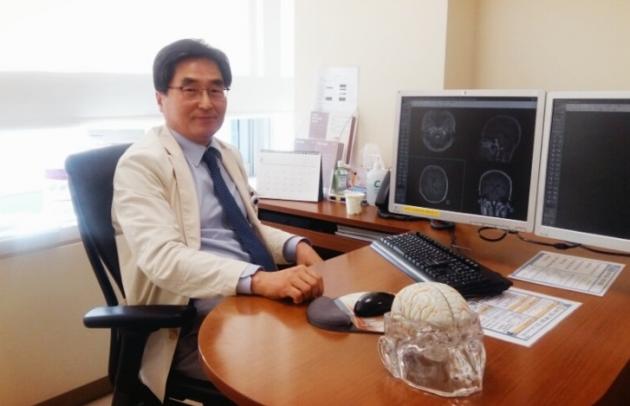“I know that a difficult job lies ahead of me, but I plan on working with the three international neuro-oncology societies to host the sixth meeting in 2021 to take place in Korea.”
So said Professor Hong Yong-kil홍용길 of the Catholic University of Korea Seoul St. Mary Hospital가톨릭대 서울성모병원 who has recently become the sixth president of the World Federation of Neuro-Oncology Societies.
The federation is an umbrella organization, which encompasses the American Society of Clinical Oncology, European Association of Neuro-Oncology, and Asian Society of Neuro-oncology, to serve as an “international platform for education and research for the neuro-oncology field,” Hong explained.
Professor Hong graduated from Catholic University Medical School in 1980 and became a neurosurgeon in 1985. In the 1980s the field of neuro-oncology was underdeveloped and new in Korea, which made Hong one of the few to pursue it.

“I decided very early in my studies as a medical student to study neurosurgery because I had a renowned neurosurgeon in Korea as my mentor,” Hong said in an interview with Korea Biomedical Review Monday. “However, at the time, there was no neuro-oncology department or practice in Korea, so I decided to go to MD Anderson to gain a deeper understanding.”
In 1993, Hong started his neuro-oncology fellowship at MD Anderson Cancer Center, Brain Tumor Center where he received training regarding brain surgery and chemotherapy.
“Most of the neuro-oncology research and practice I learned at MD Anderson under Dr. Alfred Young, who was my supervisor. At the time, I had no basic knowledge about neuro-oncology in research or practice, so I learned everything from the beginning,” Professor Hong said. “I learned more about chemotherapy and multidisciplinary collaboration and became the first Korean to complete a neuro-oncology fellowship.”
Since Hong returned to Korea, he has accrued a succession of accolades, serving as the director of the Catholic Cancer Research Institute and director of the Catholic Cancer Center. He is currently working as a neurosurgeon and director of Seoul St. Mary’s Hospital’s Brain Tumor Center.
In academia, Hong has served as a medical examiner of the Korean Neurosurgical Society, and the chair of the Ethics Committee and Planning Committee. He also served as the director and president of the Korean Society for Neuro-Oncology, president of the Korean Brain Tumor Society, and academic chair of the 7th meeting of the Asian Society of Neuro-oncology.
He is also the editor and judging panelist of various domestic journals, including the Journal of Korean Medical Science, the Neuro-oncology, and the Clinical Cancer Research.
His appointment as WFNOS president will be another impressive achievement as he plans for the sixth annual meeting to take place in Korea.
Hong believes that even though there are challenges regarding understanding different fields from different countries and overcoming a language barrier, he will do his utmost to carry out the role as president in the next four years.
“A successful meeting hinges upon an excellent scientific program. To this end, our scientific program committee is discussing possible programs. We have regular meetings to update each other on what each society is working on, and which parts need collaboration. I will also contact people all around the world to recruit good speakers,” he said.
The professor stressed the importance of collaboration, saying, “I cannot do this alone because I don’t know everything or everybody all over the world. The role of scientific community members is critical.”
Because scientific issues change rapidly, Hong plans on working with the community to create the best program and to find profound speakers well-versed in existing, or new, topics. Hong is also prioritizing providing more education to underdeveloped countries in Asia to decrease the gap between developed and underdeveloped ones.
“We still have four years, so I expect many changes to occur considering the rapid development in science and neuro-oncology,” Hong added.
In the meantime, Hong is working on multi-center clinical trials that focus on repurposing or repositioning already known drugs. He has founded an organization that established the first domestic infrastructure for conducting multi-center clinical trials in 2012. The domestic group now allows different Korean institutes to work together to perform many clinical trials.

